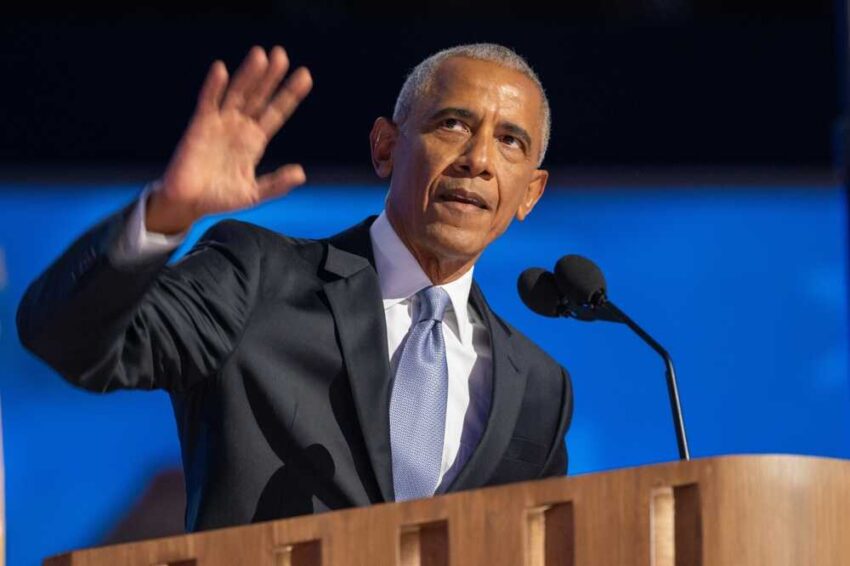(LibertySociety.com) – When over 50 Texas lawmakers crossed state lines to freeze the gears of government, Barack Obama called them “inspiring”, but was this a last stand for democracy, or a dangerous precedent for American politics?
Story Snapshot
- Former President Obama publicly praised Texas Democrats who fled the state to block a GOP redistricting bill.
- The lawmakers’ walkout denied Republicans the quorum needed to pass maps widely criticized as partisan gerrymanders.
- Legal and political maneuvering escalates, with Texas Republican leaders threatening removal from office.
- The standoff highlights national debates over voting rights, legislative norms, and partisan power plays.
Obama’s Praise Turns a Texas Standoff Into a National Flashpoint
Early August 2025, the Texas State Capitol fell eerily silent. More than 50 House Democrats, led by Rep. Gene Wu, boarded buses and left Austin, destination Illinois, leaving behind a legislative body unable to function. Their purpose: deny the Republican majority the quorum needed to pass a redistricting bill designed to cement GOP dominance for the next decade. This was not the first time such a tactic rattled Texas politics, but this dramatic exodus collided with a moment when the eyes of the nation were already fixed on voting rights and the boundaries of democracy. On August 14, Barack Obama dialed in to a virtual meeting with the absent lawmakers, delivering a message that echoed far beyond state lines.
Obama’s words, “inspiring”, were carefully chosen, but packed with gravity. He framed the walkout as not just a statehouse spat, but as a pivotal act in a “long struggle” to protect democracy itself. For Democrats, Obama’s intervention provided a jolt of morale and national legitimacy. For Republicans, it was gasoline on a smoldering fire, prompting Texas House leaders to threaten removal from office and pursue every legal avenue to compel their rivals’ return. The tactic, fleeing to break quorum, has deep Texan roots, but Obama’s entry elevated it to a new level, raising the stakes for both parties and the nation as a whole.
The Mechanics and Motives Behind the Walkout
The mechanics of the standoff are rooted in Texas law: the state House cannot conduct business without a two-thirds quorum. By physically leaving Texas, Democrats shielded themselves from law enforcement ordered to drag them back to the chamber. This gambit, once rare, has become increasingly common as partisan divisions harden. The immediate trigger was a Republican redistricting proposal expected to add up to five GOP seats and dilute minority voting power, an accusation Republicans dismissed as political theater. Democrats argued they had no other recourse, having failed to block the bill through debate or amendment. Their flight, they insisted, was an act of last resort.
Redistricting battles in Texas are nothing new. The 2020 census handed Texas additional congressional seats, setting off a scramble to redraw political boundaries. Both parties have accused each other of gerrymandering in past decades, with court challenges and federal oversight a recurring theme. The current bill, however, stood out for its speed and the ferocity of opposition. Previous walkouts, in 2003 and 2021, set the stage, but this time the stakes were amplified by a former president’s direct involvement and the broader national climate of anxiety over election integrity.
National Reverberations and Political Fallout
Obama’s involvement turned a Texas legislative tactic into a national test case. His virtual meeting with the Democrats, followed by public praise, reframed the standoff as a microcosm of the country’s democratic challenges. Voting rights advocates and many mainstream commentators lauded the move as a bold defense against gerrymandering and minority disenfranchisement. Critics, however, saw a dangerous precedent, a minority party abandoning its legislative duty whenever it cannot win on votes alone. Some warned that repeated quorum-denial could paralyze government and erode public trust in institutions, echoing concerns from legal scholars that such actions, while legal, are fraught with risk.
Inside Texas, the standoff has paralyzed legislative activity, with key budgets and legislation stalled. Republican leaders, holding a majority but not enough for a quorum, have pursued every legal channel to break the impasse, including threats of removal from office and lawsuits. The walkout has mobilized activists on both sides of the voting rights debate, with rallies, fundraising campaigns, and national advocacy groups weighing in. Minority communities, whose representation may hinge on the outcome, watch anxiously as the drama unfolds.
Long-Term Implications and the Precedent Set
The long-term impact of the Texas standoff remains uncertain. Short-term, the state faces legislative paralysis and growing polarization. Court challenges are all but certain, promising months or even years of legal wrangling over whatever maps eventually emerge. The precedent, however, is unmistakable: legislative walkouts now stand as a viable, if controversial, tool for minority parties nationwide. Other states with narrow majorities and contentious issues may see similar tactics, raising questions about the resilience of legislative norms. Obama’s intervention, while energizing for Democrats, may also embolden future walkouts, for better or worse.
The larger lesson may be that the rules of the political game are changing, with old norms under siege from both sides. For voters, especially those in communities whose representation hangs in the balance, the consequences are not abstract. The battle over redistricting in Texas is no longer just a state story, it’s a national referendum on how far elected officials are willing to go to shape the future of American democracy.
Copyright 2025, LibertySociety.com .
Click this link for the original source of this article.
Author: Editor
This content is courtesy of, and owned and copyrighted by, https://libertysociety.com and its author. This content is made available by use of the public RSS feed offered by the host site and is used for educational purposes only. If you are the author or represent the host site and would like this content removed now and in the future, please contact USSANews.com using the email address in the Contact page found in the website menu.








